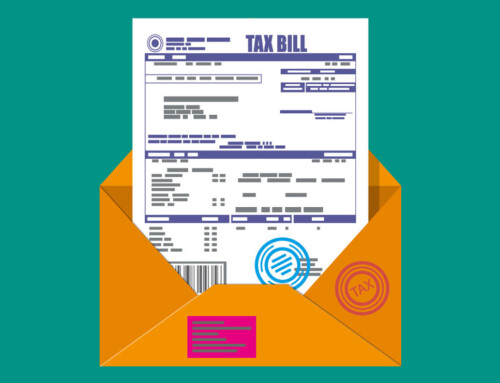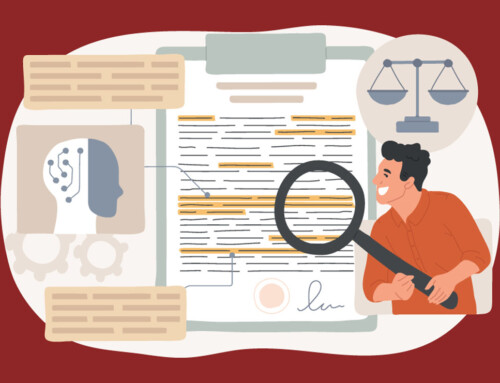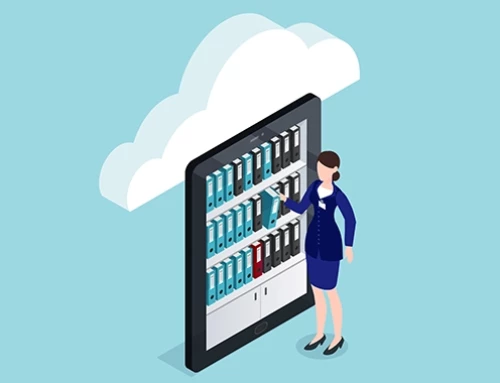Contents
Introduction
In the ever-evolving landscape of the legal industry, the quest for increased efficiency has led many law firms and legal departments to turn towards technological advancements. Legal workflow automation stands at the forefront of this transformation, not merely accelerating processes but fundamentally enhancing how legal operations and client services are managed. This innovative approach allows legal professionals to shed the burden of repetitive tasks and redirect their focus towards more strategic and impactful work. By integrating legal workflow automation into their practices, law firms can unlock new levels of productivity and service excellence.
Understanding Legal Workflow Automation
Legal workflow automation is revolutionizing the legal field by integrating cutting-edge technology to streamline essential tasks. This includes everything from invoice processing and client intake to comprehensive case management. The automation of these processes frees up valuable time for legal professionals, enabling them to concentrate on more complex and strategically significant tasks. By reducing the manual handling of routine activities, firms not only enhance accuracy but also improve the overall speed of their service delivery, setting a new standard in client satisfaction and operational efficiency.
The Imperative for Automation in Legal Workflows
The need for automation within legal workflows is more pressing than ever. With the legal landscape becoming increasingly competitive, firms must leverage technology like legal workflow automation to stay ahead. Automation tools diminish the time spent on non-billable tasks while simultaneously enhancing the efficiency of billable activities. This not only boosts profitability but also improves client relationships by ensuring faster and more accurate service delivery.
To learn more visit here.
Implementing Legal Workflow Automation: A Step-by-Step Guide
Adopting legal workflow automation requires a strategic approach to ensure seamless integration and maximum benefit. The first step is to identify the tasks within your firm that are ripe for automation. This could include routine administrative duties or client communication processes. Once identified, planning how to automate these tasks is crucial. Selecting the right tools is essential, and features provided by these tools, such as automated client intake forms and task management systems, are invaluable. Effective change management is also critical to encourage adoption and optimize the use of new technologies within your team.
Prime Legal Workflows for Automation in 2024
As we look towards 2024, certain legal workflows emerge as prime candidates for automation. Invoice review, document generation, and spend reporting can all be streamlined with legal workflow automation. RunSensible’s features like automated invoice processing and document management systems are specifically designed to address these needs, ensuring that law firms can focus more on client advocacy and less on paperwork. This strategic approach not only enhances operational efficiency but also significantly boosts the capacity of legal professionals to engage in higher-value work, thereby maximizing both client satisfaction and firm profitability.
Leading Tools for Legal Workflow Automation
The landscape of legal workflow automation is rich with tools designed to streamline operations and enhance the efficiency of legal practices. RunSensible stands out for its comprehensive suite of features, but it’s also beneficial to consider how other tools compare to provide a holistic view of the available options.
- RunSensible provides seamless CRM integration, document automation, and precise time tracking, making it a robust choice for law firms aiming to integrate a wide array of functions into one platform. Its user-friendly interface and customizable features make it an excellent tool for firms of all sizes.
- Clio Manage is another prominent tool in the legal workflow automation market. It offers robust case management features, billing, and client communication capabilities. Clio’s cloud-based technology facilitates easy access to case details and documents from anywhere, enhancing flexibility for legal professionals.
- MyCase is a tool that simplifies client communications by providing a secure portal for messaging, sharing documents, and making payments. Its integrated features make it ideal for smaller law firms looking for cost-effective solutions to manage cases and maintain client relationships efficiently.
- PracticePanther is known for its intuitive design and powerful automation capabilities in time tracking, billing, and calendaring. The platform’s integration with other tools, like email and payment processors, streamlines the management processes and reduces the administrative load on legal staff.
By comparing these tools, law firms can better understand the specific features and integrations that will best meet their operational needs and enhance their workflow efficiency. Each tool offers unique strengths, and selecting the right one depends on a firm’s specific requirements, budget, and the scale of operations they manage.
The Tangible Benefits of Legal Workflow Automation
The benefits of implementing legal workflow automation are vast and varied. From increasing operational efficiency and reducing errors to cutting costs and enhancing job satisfaction among legal professionals, the advantages are clear. Law firms utilizing RunSensible have reported significant improvements in workflow efficiency and client satisfaction, illustrating the impactful transformation that automation can bring to the legal industry. These tangible benefits not only help firms manage their resources more effectively but also allow them to provide superior service to their clients, thereby strengthening their market position and fostering sustainable growth.
For more information click here.
Conclusion: Navigating the Future of Legal Workflows with Automation
As the legal sector continues to evolve, legal workflow automation will play a pivotal role in shaping the future of legal practices. By adopting advanced technologies like those provided by RunSensible, law firms can not only stay competitive but also significantly improve their efficiency and client service. Looking forward, the integration of automation into legal workflows is not just a trend but a necessary evolution to thrive in a digital-dominated world. As law firms adapt to these changes, they will find that automation is not just about keeping pace but about setting the pace in a rapidly transforming industry.
Explore the future of law with RunSensible’s legal workflow automation solutions. With our comprehensive tools designed to streamline your operations, reduce overhead, and enhance client service, your firm can achieve unprecedented efficiency. Schedule a demo or consultation today to discover how RunSensible can revolutionize your legal workflows and help you stay ahead in the competitive legal market.
FAQs: Legal Workflow Automation
1. What is legal workflow automation?
Legal workflow automation refers to the use of technology to streamline and automate routine tasks and processes within a law firm. This includes tasks like document management, client intake, invoicing, and case management. By automating these tasks, law firms can focus more on client advocacy and strategic work.
2. How does legal workflow automation benefit a law firm?
Legal workflow automation offers numerous benefits including increased efficiency, reduced operational costs, fewer errors, and enhanced client satisfaction. Automation allows lawyers to minimize time spent on administrative tasks, leading to more time for billable work and client interaction, which can significantly improve profitability and service quality.
3. How can I start implementing legal workflow automation in my firm?
To begin implementing legal workflow automation, start by identifying repetitive and time-consuming tasks that are candidates for automation. Next, choose the right automation tools that fit your firm’s specific needs. RunSensible offers a variety of features such as automated client intake forms, document management, and task tracking that can be tailored to streamline your firm’s operations effectively.
Disclaimer: The content provided on this blog is for informational purposes only and does not constitute legal, financial, or professional advice.







